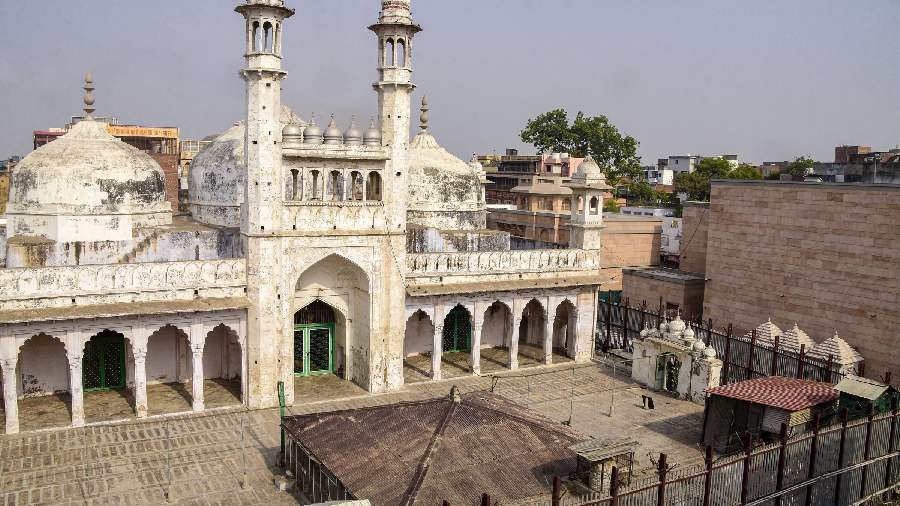The Allahabad High Court on Wednesday rejected a plea challenging the maintainability of a suit filed by five Hindu women seeking permission for regular worship of Shringar Gauri and other deities in Varanasi's Gyanvapi mosque compound.
Justice J J Munir dismissed the mosque management committee's revision petition that contended that the suit is barred under the Places of Worship Act, 1991, which prohibits conversion of any place of worship and provides for the maintenance of its religious character as it existed on August 15, 1947. The Anjuman Intezamia Masjid (AIM) committee had filed the petition in the high court against the order of the district judge of Varanasi in September last year that turned down its objections on the maintainability of the suit filed by the five Hindu women.
The suit filed in August 2021 sought permission for daily worship at Maa Shringar Gauri Sthal in the Gyanvapi complex.
The district judge had on September 12, 2022 dismissed the plea of AIM filed under Order 7 Rule 11 of the Civil Procedure Code (CPC). It had observed that the suit by the Hindu women was not barred by the Places of Worship (Special Provisions) Act, 1991, The Wakf Act 1995, and the UP Shri Kashi Vishwanath Temple Act, 1983 as was being claimed by the AIM.
The counsel for the petitioner, SFA Naqvi, contended before the court that the claim of the Hindu side that the devotees were restrained from worshipping Shringar Gauri and other deities on the outer wall of Gyanvapi in 1993 is an "artificial" claim and an example of clever drafting.
According to him, no order was passed by the then state government in writing in 1993.
He said that the aforesaid claim has been made only to avoid the application of the Places of Worship Act, 1991.
He pointed out that even if the claim of the Hindu side is accepted, why did they not file suit in 1993 when they were so restrained or thereafter.
Hence, the suit filed before the Varanasi court is illegal under the Limitation Act which bars the filing of any suit for declaration after three years of an incident.
He claimed that Gyanvapi is on a Waqf property, hence in case of any grievance, the claim should be made before the Waqf Tribunal.
On the other hand, the counsel representing the Hindu women had taken the plea that old maps showed the existence of sculptures of Hindu deities in the Gyanvapi mosque structure and the Hindu devotees were regularly worshipping Shringar Gauri and other deities on the outer wall of Gyanvapi since long.
They said it was only in 1993 that the then government restrained regular worship and they were permitted to worship only once a month. Hence, the Act of 1991 is not applicable to them. Further, they claimed, the place in dispute is not a Waqf property.
The Vishva Hindu Parishad welcomed the Allahabad High Court's decision.
"The technical objections have been negated. The suit would now proceed on merits and we do see success at the end of the tunnel," VHP national working president Alok Kumar said.
"We hope that now the suit will expeditiously proceed towards a final judgement," he added.
Except for the headline, this story has not been edited by The Telegraph Online staff and has been published from a syndicated feed.










